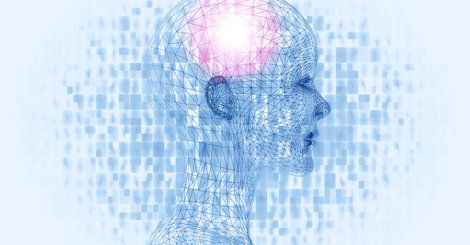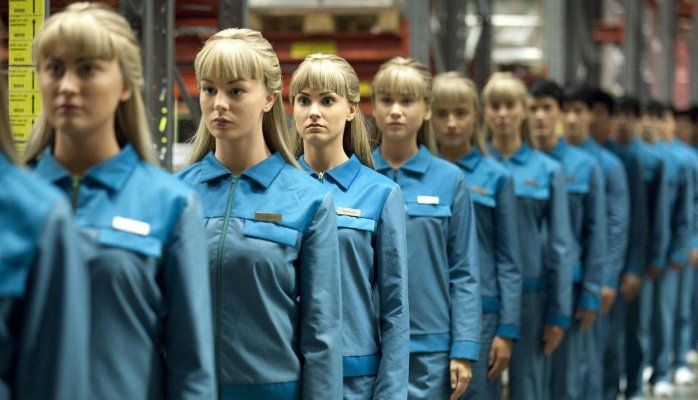Page 11664
Sep 5, 2015
Magnetism generated in non-magnetic metals
Posted by Shailesh Prasad in category: quantum physics
By altering the quantum interactions of the electrons in the atoms of a metal’s atoms, scientists from the University of Leeds have generated magnetism in metals that aren’t normally magnetic. This move could one day reduce our reliance on rare or toxic metals in a range of fields.
Sep 5, 2015
Thanks to 3D printing, prosthetics can now be built faster and way cheaper than ever before
Posted by Lily Graca in categories: 3D printing, biotech/medical, cyborgs
For those who missed this.
By all counts, Earth is on a one way trip to oblivion. Our aging Sun will see to that. Within 500 to 900 million years from now, photosynthesis and plant life on Earth will reach a death-spiral tipping point as the Sun continues its normal expansion and increases in luminosity over time.
Trouble is, researchers are still unsure about all the grisly endgame details, and their models of such slow motion horrors are hard to test. But a team of researchers now say that finding and observing nearby aging Earth-analogues, undergoing the ravages of their own expanding sun-like stars, will help Earth scientists understand how the stellar evolution of our own sun will affect life here on Earth.
Sep 5, 2015
Controversial Philosopher Says Man And Machine Will Fuse Into One Being
Posted by Scott Davis in categories: biotech/medical, cyborgs, engineering, genetics, singularity
The human being — especially in so-called “advanced civilizations” — is the animal that molds itself into its own pet.
Peter Sloterdijk is Germany’s most controversial thinker and media theorist. He has dared to challenge long-established divisions in traditional philosophy of body and soul, subject and object, culture and nature. His 1999 lecture on “Regulations for the Human Park,” in which he argued that genetic engineering was a continuation of human striving for self-creation, stirred up a tempest in a country known for Nazi eugenics. At the same time, he himself has concluded that “the taming of man has failed” as civilization’s potential for barbarism has grown ever greater. His seminal books include “Critique of Cynical Reason” and his trilogy, “Spheres.”
At a recent Berggruen Center on Philosophy and Culture symposium on humans and technology at Cambridge University’s St. John’s School of Divinity, The WorldPost discussed with Sloterdijk the end of borders between humans and technology, the cloud, singularity and identity in the age of globalization.
Continue reading “Controversial Philosopher Says Man And Machine Will Fuse Into One Being” »
Sep 4, 2015
Why’s IBM Investing $3 Billion In Quantum Computing & Synth Brains? Trillion Dollar Humanoid Market
Posted by Shailesh Prasad in categories: computing, neuroscience, quantum physics, transportation
1. Silicon technology has taken humanity a long way forward from 1947 when the first transistor was invented by the Nobel prize winners Shockley, Bardeen & Brattain.
2. From smart mobile telephones we rely on to the sophisticated satellite navigation systems guiding our cars, a lot of techno-magic we see around us is a result of our ability to scale silicon-tech that turns hitherto science fiction into everyday reality at affordable prices.
3. All the Nobel laureates, scientists and engineers we liaise with at Quantum Innovation Labs http://QiLabs.net collectively realise the end of the silicon-scaling era is coming to end as the Moore’s Law era for Silicon-based computers finally concludes.
Sep 4, 2015
The 10 Algorithms That Dominate Our World
Posted by Shailesh Prasad in categories: computing, encryption, information science

1. Google Search.
2. Facebook’s News Feed.
Continue reading “The 10 Algorithms That Dominate Our World” »
Sep 4, 2015
Toyota Pledges $50M To Research AI For Autonomous Vehicles, Hires DARPA’s Dr. Gill Pratt
Posted by Shailesh Prasad in categories: robotics/AI, transportation
Today, Toyota announced that it has hired Gill Pratt to drive its autonomous car research. Pratt is best known in this field for his work at DARPA and MIT, including starting the Robotics Challenge. The company is also investing $50 million in the research over the next five years as well as partnering with MIT and Stanford.
 Pratt has spent the past five years with DARPA, and laid out what’s important for Toyota at an event in Palo Alto today: “Our long-term goal is to make a car that is never responsible for a crash.”
Pratt has spent the past five years with DARPA, and laid out what’s important for Toyota at an event in Palo Alto today: “Our long-term goal is to make a car that is never responsible for a crash.”
Pratt will serve as Toyota’s “Executive Technical Advisor” on the research.













